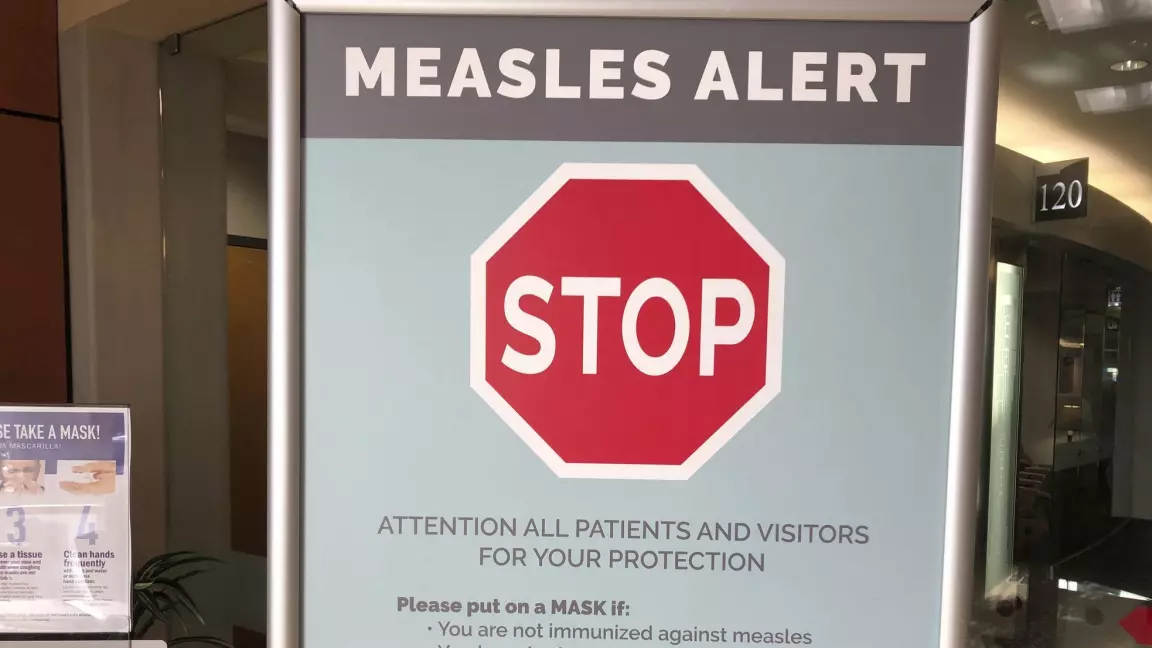Health
Half of Quebec nursing students fail September licensing exam, probe launched

|
|
MONTREAL — Quebec nursing student Jennifer Gunville says she was left in shock after she learned she had failed her licensing exam.
Gunville, 30, is among the 51 per cent of nursing students in the province who took the September exam and failed to get the minimum passing grade — 55 per cent.
The unusually low success rate is causing concern for the head of a major nurse union, who fears the results will only aggravate the health worker shortage across the province.
“First of all, I am very sad,” Gunville said in a recent interview. “I mean, I have worked in the field since 2013 as an auxiliary nurse. And I am a very good nurse. It was all very shocking.”
Auxiliary nurses in Quebec work under supervision, and Gunville hoped to become a full nurse after she received a nursing diploma in June from junior college Cégep de Saint-Jérôme. She said that after speaking with other students in her program, she was far from the only one shocked and frustrated.
The independent commissioner who oversees access to Quebec professional orders launched an investigation after he received 27 complaints last week about the exam.
“I made the decision to open an investigation last Friday after seeing all of the news reports and getting all of the complaints,” commissioner André Gariépy said in a recent interview.
Quebec’s professional nursing order — Ordre professionnel des infirmières et infirmiers du Québec — has blamed the COVID-19 pandemic for the dismal results and has stated publicly that the exam was unchanged for the last couple of years.
The preceding exam, in March 2022, had a 71 per cent success rate, while the exam in September 2021 had an 81 per cent pass rate. The order of nurses says students can take the test up to three times. The next test is in March.
In a news release on Tuesday, the professional order said it would offer “additional measures” to support students in their path to being admitted into the profession. “However, the relaxation of the criteria is not being considered, in the perspective of protecting the public.”
During an interview later in the day,Luc Mathieu, president of the nursing order, said students who failed the exam received feedback about what they need to work on, when they got their results online. “The schools will also receive feedback to give students a general idea of the areas where students need more support.”
As well, Mathieu said, the order will contact supervising nurses in hospitals and inform them what students should focus on so that the students are better prepared for the next exam. The order, Mathieu said, will also offer exam preparation sessions to all of the students who failed.
Gunville said she doesn’t believe that the high failure rate is related to the pandemic. “In my opinion, the exam was clearly revised. They are saying it’s the same, but that is just not possible.”
However, Mathieu said many of the questions were the same as the previous exam in the spring, while others were taken from a question bank. All of the questions, he added, were developed by practising nurses and by university and junior college teachers.
Isabelle Dumaine, president of a union representing Quebec nurses — the Fédération de la Santé du Québec — said she doesn’t know why September’s failure rate is so high, but she said she doesn’t think it’s entirely related to the pandemic.
“To blame the pandemic … obviously, it did not help the situation, and of course, made the training more difficult, but I think it needs to be looked into thoroughly,” Dumaine said in a recent interview.
The union, Dumaine said, is very worried about the effect the high failure rate will have on an already fragile health-care system, adding that it might exacerbate the ongoing nursing shortage in the province. She said the nurses order made clear that all the nursing students who failed the exam would be able to continue working in the health system under supervision.
“But our nurses are already overworked,” Dumaine said. “We need people that can do the job entirely.”
Marjorie Larouche, a spokesperson for the Health Department, said in an email that the exam’s high failure rate will have an effect on the number of qualified nurses available, but she did not elaborate.
Gunville said she is sad she has to retake this exam, “because I was already so prepared.”
“I don’t even know what else I can do more that will help me for the next one.”
This report by The Canadian Press was first published Nov. 15, 2022.
—
This story was produced with the financial assistance of the Meta and Canadian Press News Fellowship.
Marisela Amador, The Canadian Press
Note to readers: This is a corrected story. A previous version said the Office des professions had launched an investigation.
Health
Quebec successfully pushes back against rise in measles cases – CBC.ca


Quebec appears to be winning its battle against the rising tide of measles after 45 cases were confirmed province-wide this year.
“We’ve had no locally transmitted measles cases since March 25, so that’s good news,” said Dr. Paul Le Guerrier, responsible for immunization for Montreal Public Health.
There are 17 patients with measles in Quebec currently, and the most recent case is somebody who was infected while abroad, he said.
But it was no small task to get to this point.
Le Guerrier said once local transmission was detected, news was spread fast among health centres to ensure proper protocols were followed — such as not letting potentially infected people sit in waiting rooms for hours on end.
Then about 90 staffers were put to work, tracking down those who were in contact with positive cases and are not properly vaccinated. They were given post-exposure prophylaxis, which prevents disease, said Le Guerrier.
From there, a vaccination campaign was launched, especially in daycares, schools and neighbourhoods with low inoculation rates. There was an effort to convince parents to get their children vaccinated.
Vaccination in schools boosted
Some schools, mostly in Montreal, had vaccination rates as low as 30 or 40 per cent.
“Vaccination was well accepted and parents responded well,” said Le Guerrier. “Some schools went from very low to as high as 85 to 90 per cent vaccination coverage.”
But it’s not only children who aren’t properly vaccinated. Le Guerrier said people need two doses after age one to be fully inoculated, and he encouraged people to check their status.
There are all kinds of reasons why people aren’t vaccinated, but it’s only about five per cent who are against immunization, he said. So far, some 10,000 people have been vaccinated against measles province-wide during this campaign, Le Guerrier said.
The next step is to continue pushing for further vaccination, but he said, small outbreaks are likely in the future as measles is spreading abroad and travellers are likely to bring it back with them.
Need to improve vaccination rate, expert says
Dr. Donald Vinh, an infectious diseases specialist from the McGill University Health Centre, said it’s not time to rest on our laurels, but this is a good indication that public health is able to take action quickly and that people are willing to listen to health recommendations.
“We are not seeing new cases or at least the new cases are not exceeding the number of cases that we can handle,” said Vinh.
“So these are all reassuring signs, but I don’t think it’s a sign that we need to become complacent.”
Vinh said there are also signs that the public is lagging in vaccine coverage and it’s important to respond to this with improved education and access. Otherwise, microbes capitalize on our weaknesses, he said.
Getting vaccination coverage up to an adequate level is necessary, Vinh said, or more small outbreaks like this will continue to happen.
“And it’s very possible that we may not be able to get one under control if we don’t react quickly enough,” he said.
Health
Pregnant women in the Black Country urged to get whooping cough vaccine – BBC.com


Pregnant women urged to get whooping cough vaccine
Pregnant women in the Black Country are being urged to get vaccinated against whooping cough after a rise in cases.
The bacterial infection of the lungs spreads very easily and can cause serious problems, especially in babies and young children.
The Black Country Integrated Care Board (ICB) is advising pregnant women between 16 and 32 weeks to contact their GP to get the vaccine so their baby has protection from birth.
The UK Health Security Agency warned earlier this year of a steady decline in uptake of the vaccine in pregnant women and children.
Symptoms of the infection, also known as “100-day cough”, are similar to a cold, with a runny nose and sore throat.
Sally Roberts, chief nursing officer for the ICB, which covers Wolverhampton, Dudley, Walsall and Sandwell, said anyone could catch it, but it was more serious for young children and babies.
“Getting vaccinated while you’re pregnant is highly effective in protecting your baby from developing whooping cough in the first few weeks of their life – ideally from 16 weeks up to 32 weeks of pregnancy,” she said.
“If for any reason you miss having the vaccine, you can still have it up until you go into labour.”
Follow BBC West Midlands on Facebook, X and Instagram. Send your story ideas to: newsonline.westmidlands@bbc.co.uk
Health
Measles cases stabilize in Montreal – CityNews Montreal


The number of measles cases has stabilized, according to the Montreal Public Health.
Since March 25, there have been no contaminations reported within the community.
“Our teams have identified all contact cases of measles,” said media relations advisor Geneviève Paradis. “It’s a laborious task: each measles case produces hundreds of contacts.”
All community transmission cases since February 2024 have been caused by returning travelers who were either unvaccinated or partially vaccinated.
Currently, there are 18 measles cases in Montreal – with 46 total in Quebec. This according to the April 18 figures from the provincial government.
“With the summer vacations approaching, if you’re travelling, it is essential to check if you are protected against measles,” explained Paradis.
According to Montreal Public Health, a person needs to have received two doses after the age of 12 months to be immunized against the virus.
They’ve launched a vaccination campaign throughout the region, and currently, 11,341 people have been vaccinated against measles in Montreal between March 19 and April 15.
Vaccination is also being provided in schools and at local service points.
“The vaccination operation is under the responsibility of the five CIUSSS of the territory,” concluded Paradis.
-



 Tech19 hours ago
Tech19 hours agoCytiva Showcases Single-Use Mixing System at INTERPHEX 2024 – BioPharm International
-
News21 hours ago
Tim Hortons says 'technical errors' falsely told people they won $55K boat in Roll Up To Win promo – CBC.ca
-



 Health15 hours ago
Health15 hours agoSupervised consumption sites urgently needed, says study – Sudbury.com
-



 Politics23 hours ago
Politics23 hours agoFlorida's Bob Graham dead at 87: A leader who looked beyond politics, served ordinary folks – Toronto Star
-



 Tech21 hours ago
Tech21 hours agoAaron Sluchinski adds Kyle Doering to lineup for next season – Sportsnet.ca
-



 Science23 hours ago
Science23 hours agoRecord breaker! Milky Way's most monstrous stellar-mass black hole is sleeping giant lurking close to Earth (Video) – Space.com
-
Media24 hours ago
Georgia’s parliament votes to approve so-called ‘Russian law’ targeting media in first reading – CityNews Kitchener
-



 Politics21 hours ago
Politics21 hours agoTrump faces political risks as trial begins – NBC News






